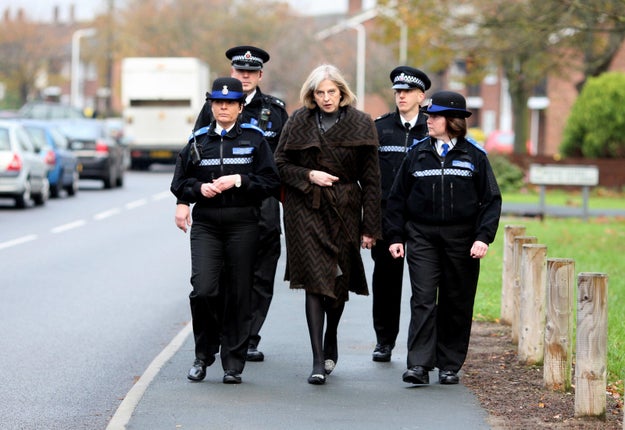If a shadowy cabal of supervillains is responsible for wars, terrorist attacks and economic recessions, then it's scary, but also kind of cool. It provides reassurance that at least someone is in charge. If you can divine the motives of the grand conspiracy, you might be able to oppose it or at least stay out of its way.
 |
| Our Prime Minister, looking particularly villainous. Image source: Buzzfeed |
The alternative is that nobody is in control. Everyone is making it up as they go along, and all-powerful conspiracies don't exist because no one is that good at keeping secrets. Even national leaders and billionaires have less power than we might think. Terrible things are more often done by foolish and pitiful individuals, than by evil masterminds. This is altogether more unsettling, but also much more realistic.
I try to adhere to the second worldview. Brexit is a case in point. It was the opposite of an ingenious conspiracy; instead, it was a stupid, arrogant gamble by David Cameron, based in the stupid, arrogant certainty that the electorate would never really defy the political and corporate establishment and vote to leave the EU.
Despite my best efforts though, I might have fallen victim to a mild form of belief in supervillains.
In recent pieces on the government, Brexit and the election, I've assumed Theresa May has the following qualities:
- Reasonably intelligent
- Meant what she previously said about Brexit being a terrible idea
- Ruthless about securing her own personal advancement and authority
- Content to hurt the most vulnerable; but wants the British economy to be successful
Accounts of May's meeting with Jean-Claude Juncker, President of the European Commission, at Downing Street this week are very worrying. If the reports are accurate, they indicate May does not understand the magnitude of the task before her, and doesn't want to. She followed it up with an extraordinary speech in which she accused the EU of trying to interfere in the UK election, and of making threats against Britain. The "threats" in question were merely a calm and reasonable statement of the EU's negotiating position.
When she was a senior member of David Cameron's government, May believed Brexit would be a disaster, because it was expedient to think so. Now that she is Prime Minister in a government committed to Brexit, she believes everything will be made good through the power of British pluckiness and defiance. It's what John Elledge has brilliantly called the Tinkerbell theory; if we only believe hard enough, our wishes will come true.
It seems that like many politicians before her, May has gotten lost in her own spin, and forgotten there is an external reality outwith her control.
As Groucho Marx once said:
Those are my principles. If you don't like them I have others.Shifting principles do not worry me nearly so much as a shaky grasp of the facts.
The UK was able to negotiate opt-outs as a member of the EU, and an interesting piece by Stewart Wood argues this has made May complacent. Now the UK will be an outsider, not a member of the EU or even the Single Market, but asking to opt into the EU institutions it likes. Instead of being able to cut deals with individual member states, it will be negotiating with the EU as a unit. It is a very different situation, but the Prime Minister might not realise that.
Brexit negotiations will not really get underway until after the German elections in September. Perhaps by then, May will have a better understanding of what the UK can and cannot expect to achieve in negotiations with the EU. Maybe her crass remarks about EU meddling are so much cynical electioneering.
Then again, maybe she's spent too long around one of the longest-running British conspiracy theories: Everything disagreeable is the fault of a sinister cabal of bureaucrats based in Brussels. She works and socialises with Tories who believe this with all their hearts. It wouldn't be surprising if it was starting to rub off on her.
Time will tell. Opinion polls continue to predict a Tory landslide on 8 June, so for good or ill, Theresa May will be in charge of Brexit. I can only hope she is a little more realistic and less pig-headed than this week's events would indicate.
No comments:
Post a Comment